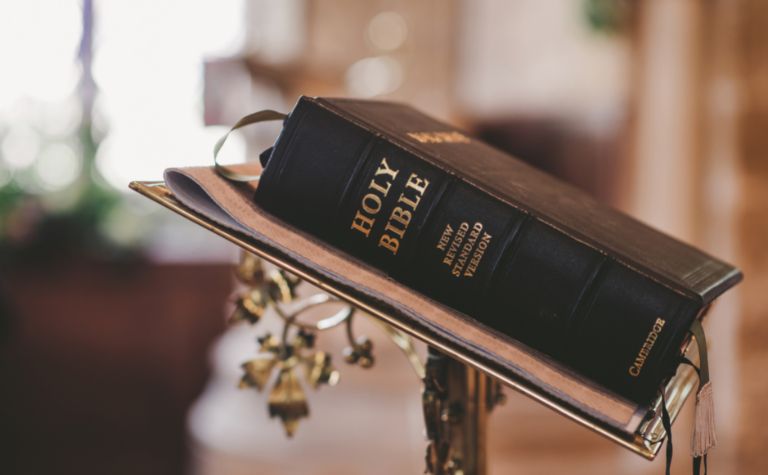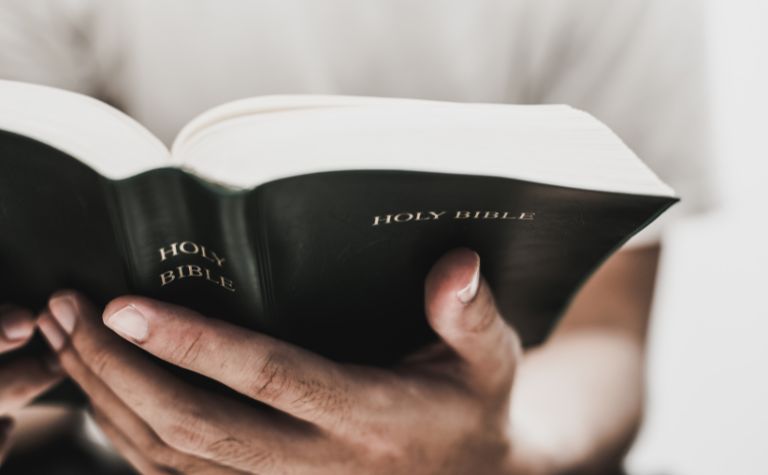The Bible includes many examples of women with extraordinary faith in God. Hannah is one of them. Her story is told in the book of 1 Samuel in the Old Testament. Hannah’s life included distressing relationships and physical challenges. Yet, she was devoted to God and sought him diligently, and he responded to her in powerful ways.
Hannah is best known for giving birth to Samuel after a long period of barrenness. Samuel was Israel’s last judge, who was also a priest and a prophet. Hannah was married to Elkanah. Penninah, Elkanah’s other wife, was her rival. In one scene, a priest mistook Hannah’s sadness for drunkenness.
How does Elkanah react to Hannah’s barrenness? Is Peninnah cruel or empathetic toward her? Who was Eli? What mistake does he make? How does he accept Hannah’s correction of him? When did she finally get pregnant? How does Hannah’s prayer recall God’s sovereignty? Keep reading to learn the answers to these questions and others.
Also, see Who Was Nicodemus in the Bible? to learn more.

Hannah’s Trials and Tribulations
In his book Twelve Extraordinary Women, John MacArthur writes about Hannah: “Her love for heaven, husband, and home are still the true priorities for every godly wife and mother. Her extraordinary life stands as a wonderful example to women today who want their homes to be places where God is honored, even in the midst of a dark and sinful culture.” [1]
The Bible tells Hannah’s story in the context of Samuel’s narrative in the book of 1 Samuel (1 Sam. 1-7), the ninth book of the Old Testament.
Samuel’s birth story shows that his mother, Hannah, was devoted to God despite extremely difficult circumstances in her home and with her body (1 Sam. 1-2). The first two chapters of 1 Samuel are the only places that the Bible mentions Hannah.
Peninah is cruel to her
Hannah’s home consisted of her husband, Elkanah, and his other wife, Penninah. At the beginning of the narrative, Penninah has children, but Hannah is barren. In ancient Israel, many people looked down on women that were childless. People scorned and shunned childless women because they thought they were godless.
Sadly, Penninah cruelly mocked Hannah for being barren. “And her rival used to provoke her grievously to irritate her, because the Lord had closed her womb” (1 Sam. 1:6, ESV). The Hebrew word translated as “rival” (tsarah, צָרָה) means “adversary.” Hannah shared a husband with her enemy.
Elkanah doesn’t understand her
Though Elkanah was kind to Hannah, giving her double provisions (e.g., 1 Sam. 1:5), her long struggle with barrenness, coupled with Penninah’s cruelty, caused her such great sadness that she wouldn’t eat (1 Sam. 1:7).
To make matters worse, Elkanah had a difficult time empathizing with her, failing to understand her inner struggle for children (1 Sam. 1:8).
Elkanah used to make a pilgrimage year to Shiloh to worship God and make sacrifices at the tabernacle (1 Sam. 1:3; Josh. 18:1). When the family was at Shiloh, Hannah “was deeply distressed and prayed to the Lord and wept bitterly” (1 Sam. 1:10).
Eli, the priest, saw Hannah and noticed that her lips were moving. However, she wasn’t speaking out loud but only mouthing the words of her prayer.
Eli thought Hannah was drunk
Eli mistook what he saw as drunkenness. “Hannah was speaking in her heart; only her lips moved, and her voice was not heard. Therefore Eli took her to be a drunken woman” (1 Sam. 1:13). He told her to stop drinking alcohol (1 Sam. 1:14).
Hannah responded, “No, my lord, I am a woman troubled in spirit. I have drunk neither wine nor strong drink, but I have been pouring out my soul before the Lord. Do not regard your servant as a worthless woman, for all along I have been speaking out of my great anxiety and vexation” (1 Sam. 1:15-16).
Eli accepted Hannah’s explanation and blessed her: “Go in peace, and the God of Israel grant your petition that you have made to him.” She answered, “Let your servant find favor in your eyes.” Then Hannah left, started eating again and was no longer sad (1 Sam. 1:17-18).
Also, see Who Was Caleb in the Bible? to learn more.

Hannah becomes pregnant
The day after Hannah’s prayer at the tabernacle and her interaction with Eli, she and Elkanah worshipped God and returned home.
Then the story says that “Elkanah knew Hannah his wife, and the Lord remembered her. And in due time Hannah conceived and bore a son, and she called his name Samuel, for she said, ‘I have asked for him from the Lord'” (1 Sam. 1:19-20).
Hannah Dedicates Samuel to God’s Work
When Hannah asked God for a son, she promised to dedicate him to God’s work. She vowed, “if you will indeed look on the affliction of your servant and remember me and not forget your servant, but will give to your servant a son, then I will give him to the Lord all the days of his life, and no razor shall touch his head” (1 Sam. 1:11, ESV).
Hannah later followed through on her vow. After she weaned Samuel, Hannah took him to the tabernacle at Shiloh (1 Sam. 1:21-24).
She offered Samuel for God’s work, saying, “For this child I prayed, and the Lord has granted me my petition that I made to him. Therefore I have lent him to the Lord. As long as he lives, he is lent to the Lord” (1 Sam. 1:27-28).
Also, see Who Was Ezra in the Bible? to learn more.

Hannah’s Reflections On God’s Sovereignty
1 Samuel 2:1-10 records Hannah’s prayer for thankfulness to God because he enabled her to have children. She praises God with her heart and words for how he has acted in her life (1 Sam. 1:1), saying, “There is none holy like the Lord: for there is none besides you; there is no rock like our God” (1 Sam. 1:2).
Hannah knows that God isn’t only sovereign in her life, but he rules the world, too. His sovereignty knows no bounds. “For the pillars of the earth are the Lord’s, and on them he has set the world” (1 Sam. 2:8b).
| Verses | Theme |
|---|---|
| 1 Sam. 2:1-3 | God is sovereign over Hannah’s life |
| 1 Sam. 2:4-8 | God is sovereign over the world |
| 1 Sam. 2:9-10 | God is sovereign over the future |
The end of the prayer expresses trust that God will protect his people and thwart their enemies. Hannah says, “He will guard the feet of his faithful ones, but the wicked shall be cut off in darkness” (1 Sam. 9a).
Hannah’s narrative ends with Samuel serving God alongside Eli. “Then Elkanah went home to Ramah. And the boy was ministering to the Lord in the presence of Eli the priest” (1 Sam. 1-11). As for Hannah, God blesses with other children (1 Sam. 2:21).
Old Testament scholar Bill Arnold writes, “The appropriateness of her song is obvious since her barrenness has been turned to joy by Yahweh’s power, just as Israel’s bleakness will soon be turned to exaltation through Samuel, the kingmaker.” [2]
Also, see Who Was Melchizedek in the Bible? to learn more.
References:
[1] Twelve Extraordinary Women by John MacArthur. p. 105.
[2] 1-2 Samuel by Bill Arnold. NIVAC. p. 74.
Related Questions
A lot of people know that Jesus of Nazareth lived a long time ago. They may even know that he was a Jewish man born at the time of the Roman Empire. Yet, they are unclear about exactly when he was on...
Regular Bible reading is a valuable habit, as Scripture is God's message to people. However, the Bible's 66 distinct books, featuring various authors, settings, and themes, can make it challenging...
